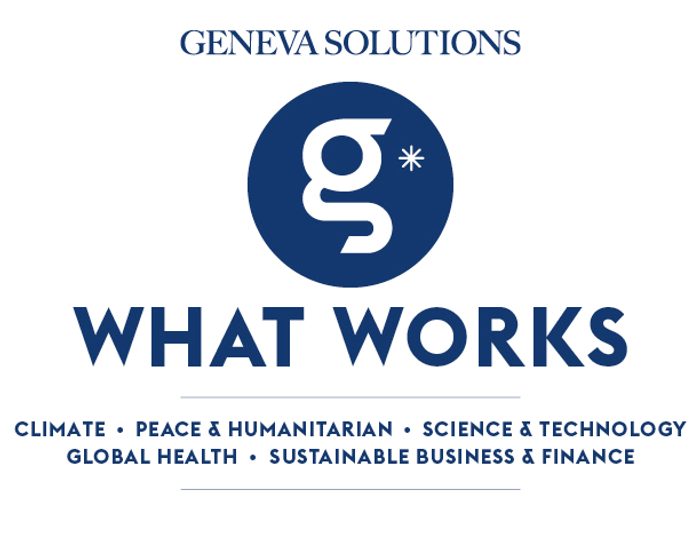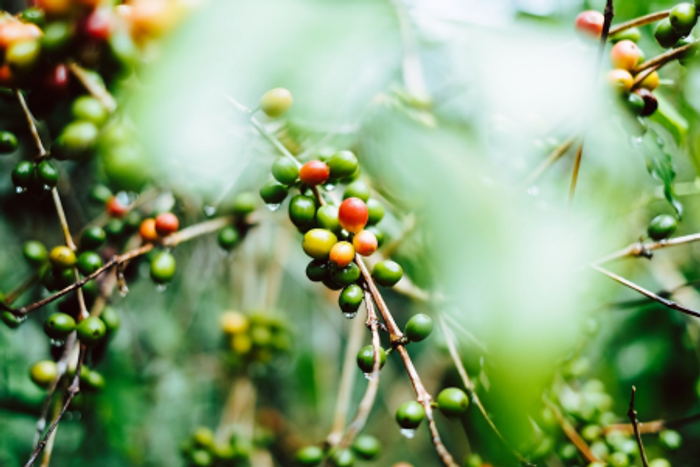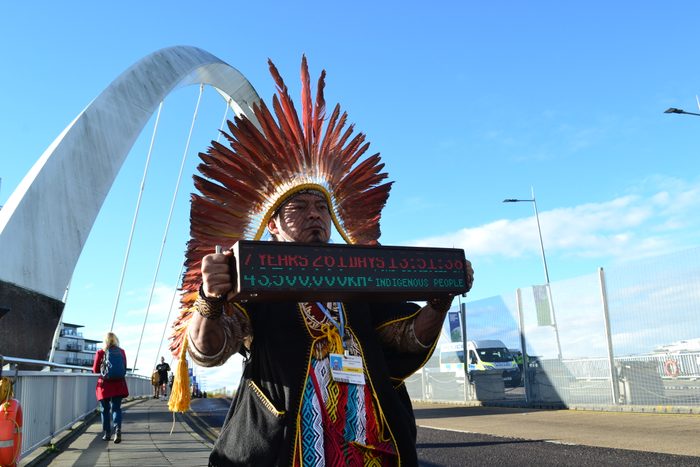 |
Good morning, it’s Kasmira. A few months back we launched a new exploration series, The Water We Share, where we reported on the many responses being explored to guarantee future access to our precious resource, many here within the Geneva-based international community.
As part of this initiative, we teamed up with Master’s students in Innovation and Sustainability at the University of Geneva, who were tasked this term with coming up with ideas for projects that will help improve access to clean water. We paid them a visit at the Campus Biotech, where we presented some of the key principles of solutions journalism and asked them to write an article on their project.
The proposals were captivating. They include a collaborative funding model to help with wastewater management in Beijing’s historic neighbourhoods; a stakeholder organisation to prevent water-sharing conflicts in Cyprus; and different ideas for creating applications or data sharing tools to track the supply and quality of water in refugee camps.
We couldn’t publish them all and therefore picked one that most closely matched the spirit and criteria of a solutions journalism article. It also happens to be local and involves something you might be holding in your hand right now: a cup of coffee. Happy reading! |

|
|
The hidden water footprint behind each cup of coffee
|
|

(Source: Gerson Cifuentes/ Unsplash)
|
|
Have you ever thought about how much water goes into your daily cup of coffee? It’s a lot more than what you pour out of the kettle. In fact, the UN estimates it takes 140 litres of water to grow, process and transport enough coffee beans for one single cup. A new digital campaign being developed by students at the University of Geneva aims to educate and incentivise coffee buyers to decrease their water footprint while enjoying a more sustainable “café genevois”. Olivia Lundmark, Sam Ringier, Ines Navarre, Beata Ekman and Huimin Hu, explain the concept.
Read more on Geneva Solutions
|
|
Here's what else is happening
|

Indigenous attendee protests outside the COP26 in Glasgow, UK. (Credit: Geneva Solutions)
|
|
⏰ The clock is ticking.
As climate talks near the end the first week, indigenous rights activists came to Glasgow to warn that the time left before reaching the 1.5ºC limit is running out, with less than eight years to go - according to the Climate Clock campaign. Indigenous peoples are the first guardians of the world's biodiversity, yet are also some of the most impacted by climate change. Some have complained of being excluded from negotiations on key issues such as deforestation, according to the Brazilian media Midia Ninja.
Climate Clock (EN)
|
|
|
GS news is a new media project covering the world of international cooperation and development. Don’t hesitate to forward our newsletter!
Have a good day!
|

|
|
Avenue du Bouchet 2
1209 Genève
Suisse
|
|
|
|









